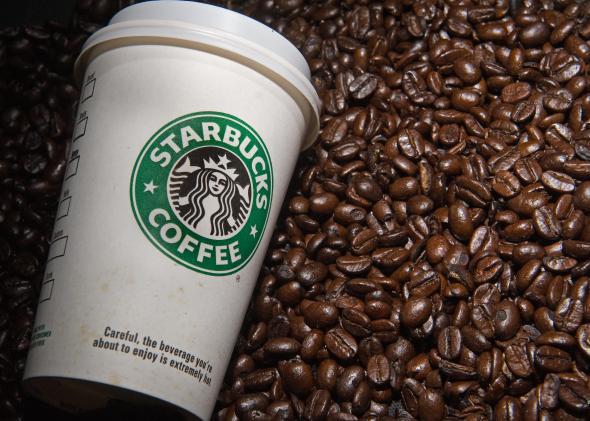Starbucks used to be special—a small Seattle roaster. Then, under chief executive Howard Schultz, it grew, and grew, and went public, and kept growing. Today it is the international coffee Goliath that sells the pumpkin spice latte. True coffee snobs have moved on and left Starbucks wondering how to win them back.
On Tuesday, Starbucks presented part of its answer to that question. Starting in March, it will make its highest-end beans—a line of “super-premium, small-lot coffees”—available to customers in the U.S. through monthly subscriptions. Each month, for $24, subscribers will get shipped a different 8.8-ounce bag of a “roaster’s pick.” The beans are supposed to be packaged and shipped within 48 hours of when they are made at the company’s special tasting room and roastery in Seattle, resulting in what Schultz calls the “freshest, fastest, and most innovative whole bean coffee experience in the marketplace.”
Freshness and speed aside, what this otherwise standard mail-order program seems to be about is exclusivity. The small-lot coffees Starbucks is marketing will only be available through one of these subscriptions or on site at the specialty roastery in Seattle. For most of America, of course, the latter isn’t a realistic option. According to my coffee-consuming colleagues, $24 for a bag of beans while pricy, also isn’t too absurd for a super-specialty roast (shipping is included). Blue Bottle, the new “it” coffee brand that has lured away many Starbucks customers, ships subscribers 12-ounce bags of beans for $17 apiece. Stumptown sells 12-ounce bags of its own roaster’s pick for $20, which doesn’t include shipping.
In his opening remarks for Starbucks’ first-quarter earnings last month, Schultz said that the new specialty roastery, which opened in early December, had been the “strongest opening in the 40-plus-year history of our company” and was “exceeding even our most optimistic projections.” The roastery, he continued, “represents both premiumization of the coffee experience and a new chapter for Starbucks.” In coming years, Schultz said Starbucks will open 100 stores devoted entirely to marketing the company’s premium small-lot beans.
It should be notable that Starbucks feels ready for a new chapter. By most conventional corporate measures, the chain is doing just fine. In Q1 2015, it notched its 20th consecutive quarter with same-store sales growth of 5 percent or more. It matched expectations on earnings and revenue. Traffic to stores increased. But in terms of intangibles, Starbucks is worried. The trendy and premium cards are tough ones to lose. The new chapter will be about getting them back, which is probably why Schultz has begun using awful words like “premiumization.” And also probably why Starbucks is now rolling out these exclusive-ish coffee subscriptions.
